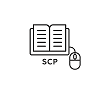
Imagine obtaining a prestigious doctoral degree without the financial burden that can often accompany such a lofty goal. For many aspiring scholars, a fully funded PhD scholarship in Canada is not just a dream but an attainable reality. This article explores various avenues through which you can secure a fully funded PhD in Canada, ensuring you achieve academic excellence without breaking the bank.
Why Consider a PhD in Canada?
Canada, known for its high-quality education system, diverse culture, and stunning natural landscapes, offers an ideal environment for higher education. Many universities in Canada are globally recognized, providing students with unparalleled opportunities for research and career advancement.
Top Universities
Canadian universities such as the University of Toronto, University of British Columbia, and McGill University consistently rank among the top institutions globally. These universities offer extensive research facilities, experienced faculty, and comprehensive support networks for international students.
Quality of Life
Canada also boasts a high quality of life, with safe cities, excellent healthcare, and welcoming communities, making it an attractive destination for international students.
“With its world-class education system and friendly environment, Canada is the perfect place to pursue your PhD.”
Understanding Fully Funded PhD Scholarship in Canada
Fully funded PhD scholarships cover tuition fees, provide a living stipend, and often include additional allowances for travel, research, and other academic activities. These scholarships aim to ease financial strains so that students can focus on their research and studies.
Components of a Fully Funded PhD Scholarship in Canada
- Tuition Coverage: Complete or partial waiver of tuition fees.
- Stipend: Monthly allowance to cover living expenses.
- Research Funding: Financial support for research projects, conferences, and publications.
- Travel Allowance: Funds for academic-related travel, such as attending conferences or workshops.
- Health Insurance: Coverage for medical expenses during the course of study.
Examples of Fully Funded PhD Scholarship in Canada
- Vanier Canada Graduate Scholarships (Vanier CGS): Offers $50,000 annually for three years to outstanding doctoral students.
- Trudeau Foundation Scholarships: Provides $40,000 per year over three years, along with an additional $20,000 annually for travel and research.
- Ontario Trillium Scholarships: For international students, offering $40,000 per year for up to four years.
How to Secure a Fully Funded Scholarship
Securing a fully funded PhD scholarship involves a combination of diligent research, preparation, and persistence. Here are the steps to help you through the process:
Research and Identify Opportunities
Start by identifying universities and programs that align with your research interests. Visiting university websites and scholarship databases can provide valuable information on available funding opportunities.
- University Websites: Check the graduate admission pages for information on available scholarships.
- Scholarship Databases: Websites like “ScholarshipsCanada.com” and “scholarshipportal.com” offer extensive listings of available scholarships.
Prepare a Strong Application
A compelling application is key to securing a scholarship. Here’s what you need to focus on:
Academic Records
Ensure your academic transcripts reflect your academic prowess. Maintain high grades and seek out opportunities for research or related extracurricular activities.
Research Proposal
Your research proposal must be innovative, feasible, and aligned with the research interests of the faculty at your chosen university. Clearly articulate your research questions, methodology, and the potential impact of your work.
Recommendation Letters
Strong recommendation letters from previous professors or mentors can significantly boost your application. Choose recommenders who know your work well and can speak to your academic and research capabilities.
Statement of Purpose
Your statement of purpose should convey your passion for research, your long-term academic goals, and why you chose that particular program and university. Make it personal and reflective of your genuine interests.
Meet Deadlines and Follow Up
Adherence to application deadlines is crucial. Mark all important dates on your calendar and submit your applications well in advance. Follow up with the university if necessary to ensure all components of your application have been received.
Personal Experiences and Success Stories
Hearing from individuals who have successfully navigated this process can provide inspiration and practical tips.
Anecdote: Kate Mwempu’s Journey
Kate Mwempu, a recipient of the Vanier Canada Graduate Scholarship, shares:
“Applying for a PhD scholarship in Canada was daunting, but breaking it down into manageable steps made it achievable. I focused on finding the right program, crafted a strong research proposal, and sought guidance from my mentors. The support from the university and the scholarship has been incredible, allowing me to fully immerse myself in my research.“
Conclusion
Obtaining a fully funded PhD scholarship in Canada is a golden opportunity to advance your academic career without the financial strain. By carefully researching opportunities, preparing a strong application, and staying diligent, you can achieve your dream of a doctoral degree. Start your journey today, and take the first step towards a future filled with knowledge, discovery, and academic success.
“A fully funded PhD in Canada is not just an education, but a pathway to an enriched and fulfilling future.”
For additional resources and continuous updates on scholarships, consider visiting:
- Government of Canada – Scholarships and Bursaries
- Universities Canada
Feel free to share your thoughts and experiences in the comments section below. Have you already applied or plan to apply for a PhD in Canada? What challenges have you faced, and how did you overcome them? Let’s continue the conversation!
Related Articles:
- Insider Tips on Securing MBA Scholarships for Women
- Top 20 MBA Fellowship Programs: The Secret to Landing Your Dream Job
- Win Big with the MBA Grants in 2024: Tips and Tricks






